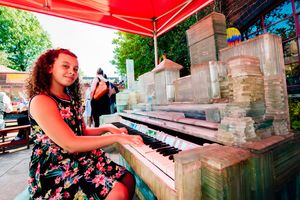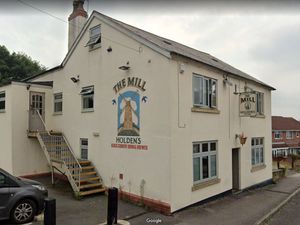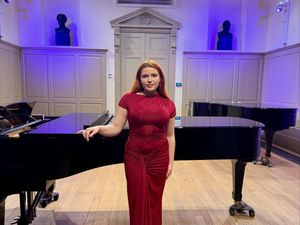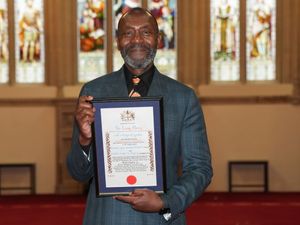Organisers hail success of glass festival
The International Festival of Glass has been hailed as a resounding success by organisers who thanked the people of a Black Country town for their help.

The four day festival held in Stourbridge Glass Quarter has attracted people from around the world to view glass art work from leading artists in the country.
Festival director Janine Christley said she was proud of the people of Stourbridge who helped to make the seventh instalment of the annual event a success.
The festival rounded off on the last day, on Monday (28), with a glass auction which saw buyers pay thousands of pounds for a glimmering variety of different sculptures.
On the evening people were treated to a circus act which saw performers entertain crowds with acrobatics.
The festival is held at the Ruskin Glass Centre, Red House Glass Cone and White House Cone and celebrates glass making around the world alongside the 400 year heritage of the trade in Stourbridge.
Its centre piece event was the British Glass Biennale exhibition which showcases work from 63 leading artists. The display of glass sculptures will be on show in the Ruskin Glass Centre until September 9.
Janine Christley, director of the International Festival of Glass, said: "It has been a huge success and the weather has helped. I think people in Stourbridge can be really proud of what they have done.
"There has been a fantastic contribution here from local artists and visitors from around the country and abroad.
"Some people came to see specific things but have ended up marvelling at other things.
"The festival has been absolutely fantastic."
The auction held on Monday afternoon in the courtyard of the Ruskin Glass Centre saw 95 items go under the hammer, with the majority of them selling.
Hundreds of people were present for the event which was hosted by Will Farmer of Fieldings Auctioneers in Stourbridge.
Will said a total of £8,927 was spent on items ranging from glass eyeballs to shiny vases. The auction lasted for two hours outside in the warm sun.
One of the trademark glass sculptures which went up for sale was a glass piano valued at £500.
The piano, called 'The Sound of Architecture', was made by Karlis Bougustovs and is covered in fragmented pieces of glass. It eventually sold for much less - £170, after the bidding started at £5.
Meanwhile the most expensive item was a glass lamb measuring around two feet high. The sculpture, made by Carrie Fertig, had a price tag of £2,950 but ended up selling for £1,150.
Will said: "The auction was brilliant. This is the fifth time we have done this event. There are some very important artists who are represented in the auction and people are desperate to get their hands on their art work."
On Monday, Circus Raj - a group of elite street circus performers from Rajasthan in northern India - performed on the evening.
Remnants of the festival will still be on show over the next week in the form of the Biennale exhibition. On its final day in September, more awards will be handed out.
Six were given out on the opening night of the exhibition on Thursday (24) evening to artists whose work were deemed best in show by judges.
Among the award winners was former University of Wolverhampton student Andrew Collins, 37, who won the runners-up student prize for his sculpture called 'Urban Chandelier', which features six glass shoes, hung from a solid ring.
Andrew's piece reflects the convention of throwing shoes over telephone lines and by integrating this into a chandelier highlights social inequalities.
He made the glass shoes by first making moulds of three types of trainers, before blowing glass onto them. The glass shoes also features 24 karat gold leaf.
Other exhibitions and workshops which took place included the Mosaic 2017 Project, which was led by Bearwood-based mosaic artist Caroline Jariwala.
She worked alongside members of the public to make glass mosaics, using different coloured pieces of glass which was handed by them.
Another project, called Hot Glass Heroes UK, saw six British Army veterans, some who suffered post traumatic stress disorder, take part in workshops aimed at helping them to adjust to civilian life.
The festival won't be held for another two years, when it will take place in 2019.





